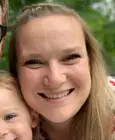ATLANTA (BP) – My husband and I live in East Atlanta among refugees. I taught at a school where all of my students were refugees learning English as their second language.
Teaching science was both challenging and rewarding. I had many students who excelled in this environment and were able to grasp the content through the supports I provided. However, I had many students with little to no English understanding in verbal or in written form. I was heartbroken, because I realized that the content they were learning in my class, even with the supports I provided, was far above their comprehension level.
During this time, I saw the critical importance of being able to read and comprehend. While I was a trained and certified science teacher, as well as a certified ESOL (English to Speakers of Other Languages) specialist, I did not have the knowledge or ability to teach the basics of reading. I had a growing concern and call to provide extracurricular reading and literacy education to students in my community.

Knowing that I could not meet the language needs of a large percentage of my students, I decided to go back to school and get a master’s degree in reading, language, and literacy (ESOL) education. This degree certified me as a reading specialist and gave me the tools I needed to teach students how to read.
Through a simple Facebook post about changing the direction of my career from teaching in a school to focusing on volunteer opportunities in the community, God immediately made a connection with a church member who helped me put my new skills to work. I was given the opportunity to create a children’s summer reading program for a non-profit that was connected to my church. Through this program, I was able to provide materials and direction for interns who were then equipped to teach students some of the basics of reading.
God has used my training as a reading specialist outside of the classroom to provide opportunities for students to hear the Word of God. It has connected me with students individually, which has given me opportunities to talk to them about their lives and how God can help them deal with problems and issues that they face.
Students living in poverty or of a different language background often do not have as many opportunities to encounter the written English language. Being read to and provided reading materials on their reading level outside the classroom is desperately needed for their success.
Individuals or a church can connect with a local school and find students who need additional reading support. The church could provide a time to read to students and/or a library that has an assortment of books for students. This could be done after school during the school year or as a summer reading program.
There are students with reading and literacy deficits in every community. Providing assistance to families is a tangible support that demonstrates the love of Christ and connects the local church with the community.
Sarah Bentley is a former high school science teacher now leading literacy ministry in her community on the east side of Atlanta.
This article was originally written by Sarah Bentley and published by Baptist Press at baptistpress.com

